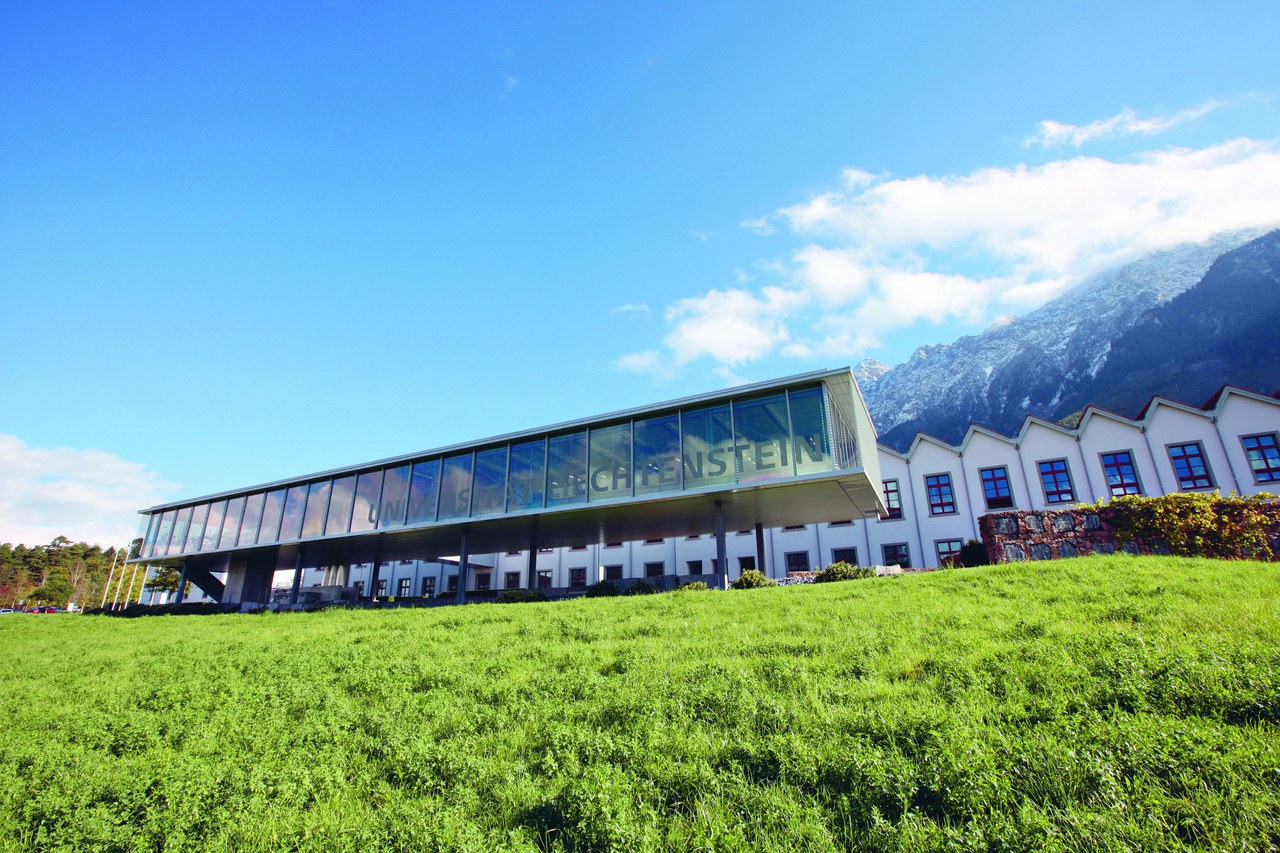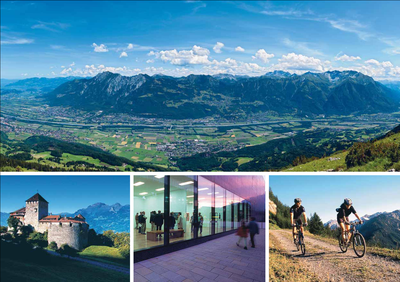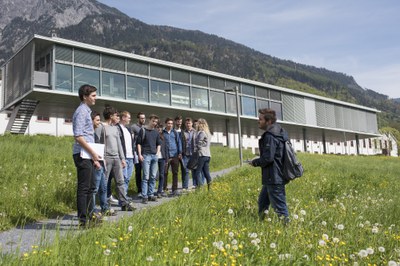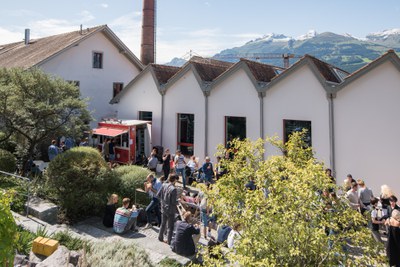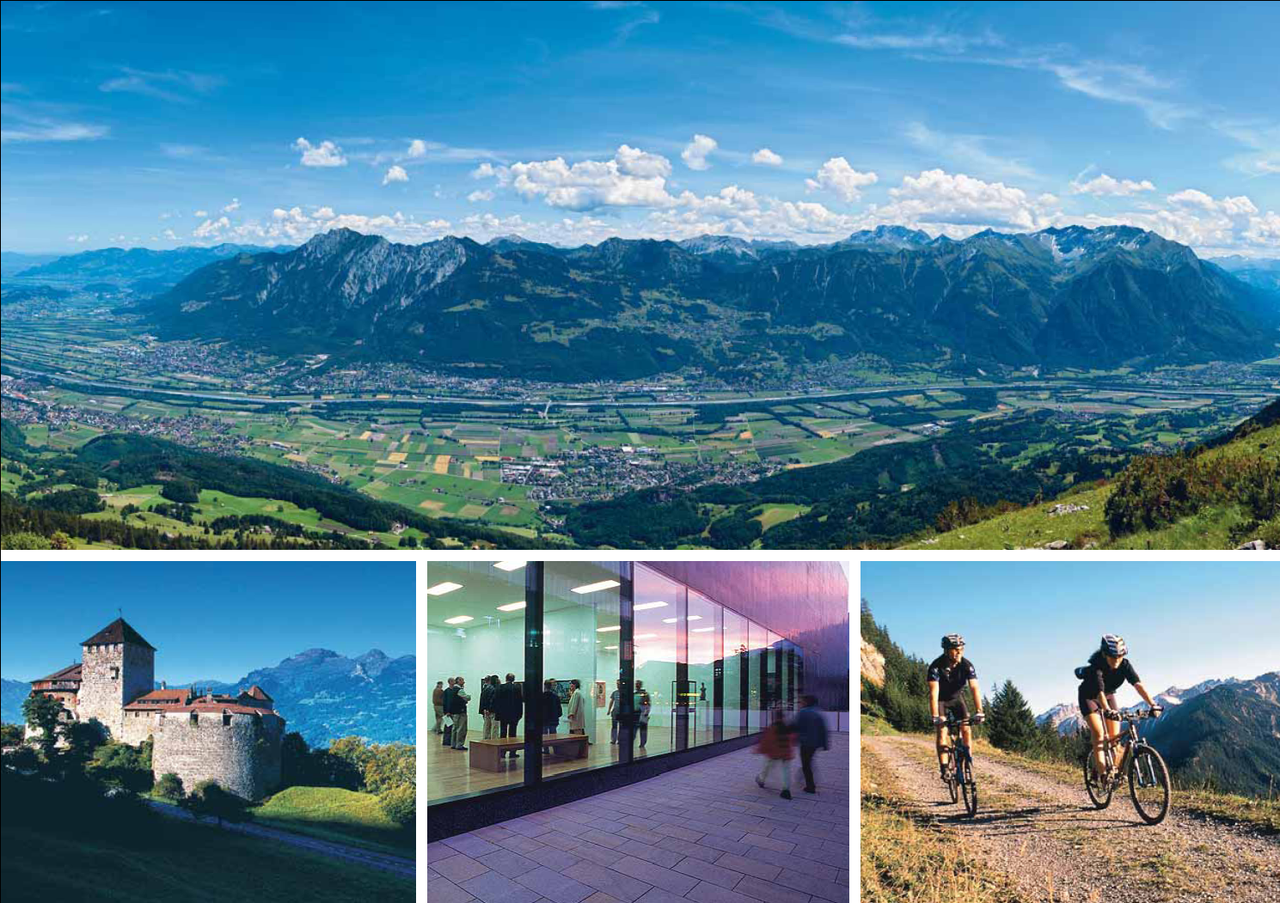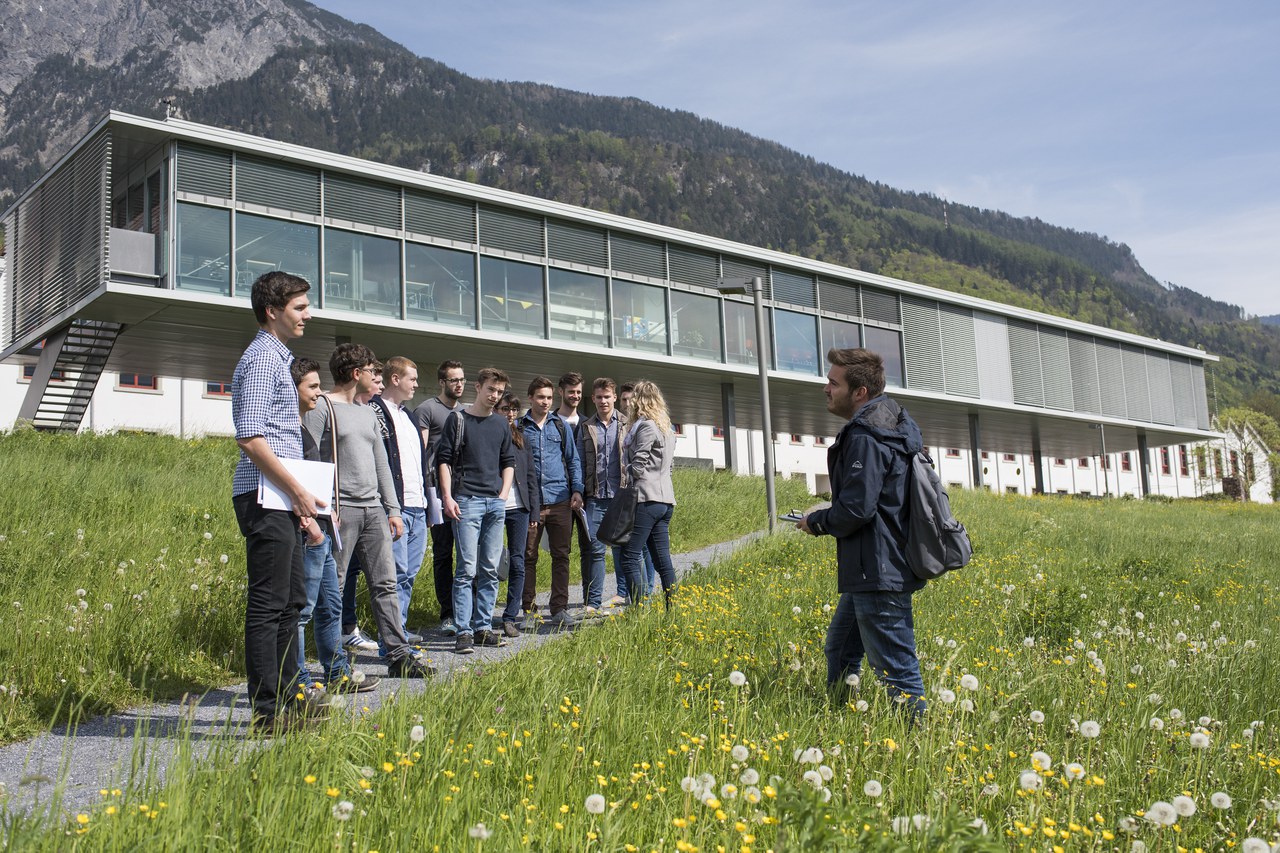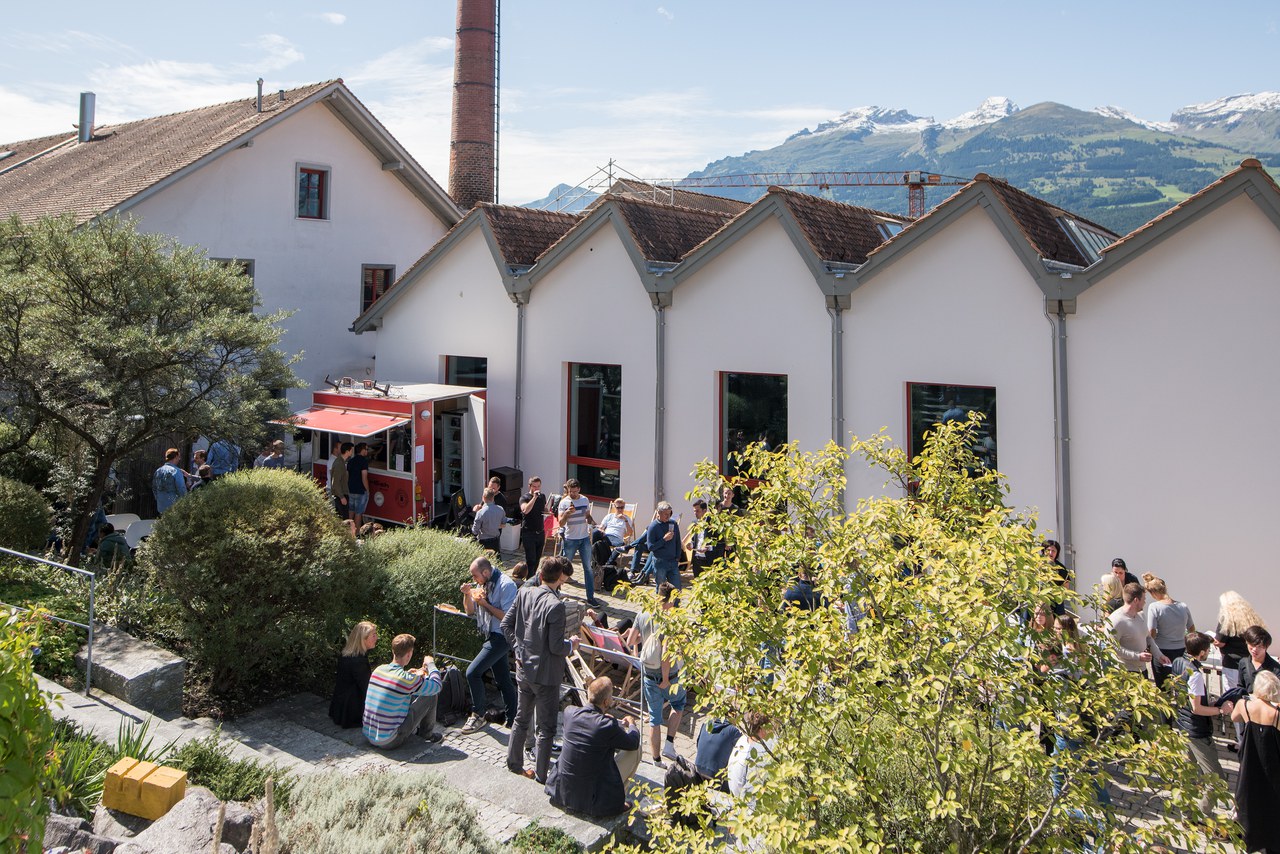This is primarily intended to inform interested parties from countries outside the EU and the EEA who wish to study full-time at the University of Liechtenstein. This is because the path is often easier for visiting students who come to Liechtenstein for a semester abroad as part of an exchange programme such as Erasmus+.
All information for visiting students
But you are interested in studying full-time in Liechtenstein. Here you will find the seven essential steps, our tips and honest answers to important questions from prospective students from EU/EEA third countries. This should help you to make the right decisions for successful studies and to see whether the University of Liechtenstein can be the place for your personal development and future.
Step 1: Liechtenstein - what is it?
Whether a Google search for a degree programme, an exciting YouTube video or a promising travel blog drew your attention to "Liechtenstein" - the small country in the heart of Europe is not easy to find. In Google Maps you zoom in
To World - On Europe - To the triangle of countries Switzerland/Austria/Germany - To the Principality of Liechtenstein
Of course there is also a direct way to us: How to get there
Facts about Liechtenstein
Liechtenstein is one of only two landlocked countries in the world that is itself surrounded by landlocked countries. The other landlocked country is Uzbekistan. The Principality is a constitutional monarchy with a parliamentary democracy. With only 160 square kilometres, it is the sixth smallest country in the world. If one of the approximately 39,000 inhabitants crosses the country from north to south, it takes just under an hour by car - at busy times of day.
The economic ties with neighbouring countries are very close - especially with Switzerland. Swiss people therefore take over the border controls with Austria, the currency is the Swiss franc and Liechtenstein, like Switzerland, is one of the most expensive countries in the world. This is important for you, because now you know the way to Liechtenstein and have to decide whether your financial means are sufficient for studying in this expensive country. But we'll get to that in step 3. First you have to decide on one of our study programmes.
Step 2: The University of Liechtenstein and its study programmes
The small university in Liechtenstein's capital Vaduz offers a total of only six Bachelor's and Master's programmes in architecture and business. So if you don't want to study Business Administration, Infpormation Systems, Finance, Entrepreneurship and Management or Architecture, we are not the right university for your goals.
Our study programmes
Our focus on a limited number of study programmes and few students in the lectures allows the lecturers to take personal care of you and your education. So imagine a campus where 800 students from 40 nations meet and courses usually have around 30 fellow students. So there's no hiding at this university, because everyone knows everyone.
Here is the essential information about our study programmes:
1. Bachelor's in Architecture: 6 semesters, 180 ECTS, language: German
2. Bachelor's in Business Administration: 6 semesters, 180 ECTS, language: German
3. Master's in Entrepreneurship and Management: 4 semesters, 120 ECTS, language: German
4. Master's in Finance: 4 semesters, 120 ECTS, language: English
5. Master's in Information Systems: 4 semesters, 120 ECTS, language: English
6. Master's in Architecture: 4 semesters, 120 ECTS, language: English
You can find all information about the individual study programmes and their curriculum at www.uni.li/study.
So if you want to do a Bachelor's degree in the German-language programmes Business Administration or Architecture or meet the requirements to do a Master's degree in Information Systems, Finance, Entrepreneurship and Management or Architecture, your journey continues with step 3 - the requirements for a degree programme.
If you want to study medicine, psychology, mechanical engineering or natural sciences, this is where we part ways and another university is right for you.
Step 3: The requirements for nationals from countries outside the EU / EEA
In order to study at the University of Liechtenstein, you must be allowed to study in the country - as at any other university - meet the admission requirements and prerequisites for studying, and understand the language of the desired study programme in order to be able to follow the classes.
The costs
Education is not free in Liechtenstein. Therefore, you must pay your tuition fees at the University of Liechtenstein as well as have sufficient funds to live and reside in one of the most expensive countries in the world.
- Application fee: CHF 100 - one-time during the application process
- Tuition fee: CHF 1250 - per semester
- Deposit Residence Permit: CHF 3000 - one-time, will be refunded at the end of your studies
- Living costs: min CHF 1500 per month for housing, food, etc.
How am I supposed to pay for that, you ask? Here you will find all information on financing your studies. The University of Liechtenstein itself does not offer any scholarships.
With your residence permit, which you need in addition to a visa for Liechtenstein, you can work in the country to a limited extent alongside your full-time studies. There are clear regulations here and sufficient success in your studies is a prerequisite. We do not offer the possibility of part-time studies for employed persons.
Admittedly, this was perhaps a sobering but honest step. But if you are still sure that you want to study and live in Liechtenstein, here are the admission requirements.
If you successfully master the full-time studies, you can work a maximum of 35% in Liechtenstein alongside your studies - with the working languages German or English. Have a look here to plan your job beforehand www.unicommunity.li.
Step 4: Admission requirements for international students
First things first: you must not miss the deadlines for submitting your online application. These are for you as a national with a visa requirement:
Bachelor's in Architecture, Master's in Architecture, Master's in Information Systems
- Application deadline summer semester: 30 September
- Application deadline winter semester: 31 May
Bachelor's in Business Administration, Master's in Finance, Master's in Entrepreneurship and Management
- Registration deadline winter semester: 31 May
Until then you have enough time to prepare all documents for the online application.
Checklist of the most important documents:
Bachelor's degree programme
- Degree certificate (Matura, Abitur or comparable international qualification that entitles you to study at universities)
- Official language certificate German C1, English B2 (depending on the degree programme)
- Portfolio for Bachelor's in Architecture (work from design subjects)
- Copy of passport, passport photo
Master's degree programme
- Bachelor's degree or other equivalent university diploma or degree certificate
- Diploma Supplement or transcript of records
- Official language certificate German C1, English B2 (depending on the degree programme)
- Curriculum vitae
- Letter of motivation
- Copy of passport, passport photo
All documents must be in either German or English. If documents, diplomas, certificates, etc. are not issued in one of the two languages, officially certified translations must be submitted in addition to copies of these original documents. Here you can find the admission requirements and documents in detail.
To be successful in your studies, you need to be able to understand the language properly. Depending on the degree programme you choose, you will need to submit an official language certificate in German (level C1) or English (level B2). As a small university, we do not offer language preparation courses or a preparatory year. Check our faqs www.uni.li/faqs.
Step 5: The online application
You now have all the necessary application documents available digitally as PDF or JPG files and the necessary financial means for your desired studies at the University of Liechtenstein. From now on, we will communicate with you via our online tool application.uni.li, through which we can reach you throughout the entire admission process until the start of your studies.
To admission
After entering all the required information and documents, you submit the application.
If you have any questions beforehand, please contact the relevant student advisory service at any time.
Your application will not be processed until you have paid the application fee of CHF 100. If we have any questions about your application, we will contact you by e-mail. Once your application has been completed and checked, we will send you an e-mail confirming that you have been registered, admitted or unfortunately rejected for studies at the University of Liechtenstein.
The application process also starts the visa application process.
Once it is clear that you fulfill the requirements for studying at the University of Liechtenstein, you will received support from the www.uni.li/welcome team. For enquires about visa application, residence or work permit there is support from bewilligungen@uni.li.
Step 6: Visa and residence permit
Students from most countries outside the EU / EEA need a visa to enter Liechtenstein. As part of the application process, we will provide you with all the necessary information. You apply for the visa yourself at the embassy in your home country - but please only after you have submitted your study application to us and we have given you an OK for the visa application.
Visa and deposit
When all application documents and your visa application are OK, we will inform you and you can pick up your visa at the embassy. But only after you have paid a deposit of CHF 3000 for the temporary residence permit in the Principality of Liechtenstein. You will get this back at the end of your studies and your stay. The residence permit is only valid once you have been accepted for your studies.
This process takes at least 6-8 weeks. But then it's time for you to pack your bags.
To organise all required information – visa, residence and work permit as well as language certificate and academic qualification – in good time. So check this website as soon as you can: www.uni.li/application.
Step 7: Check off the checklist - and off you go!
Once we have received all the necessary documents, the admission requirements have been met and the relevant director of studies has approved your admission, you will receive a provisional confirmation of admission and the first semester invoice. By paying the tuition fee, you confirm acceptance of your place at the university, which is then secured. Now all you have to do is pack your visa, buy your plane ticket and make your way to the University of Liechtenstein. You can find all information about life on campus, housing and the Welcome Week for new students here under About your studies.
Download here: International students: Requirements at a glance (PDF)
Authors: Gernot Bilz and Herwig Dämon, Communication and Marketing, University of Liechtenstein
Back to the blog overview
